Photographs: Aseem Chhabra Aseem Chhabra in Telluride and Toronto
"No producer or director wants to cast me in love stories,” says Irrfan Khan as Aseem Chhabra listens in.
A few days after the Mumbai Film Festival announced that the Iranian master Asghar Farhadi would head its jury, I sat down to interview the filmmaker in Toronto.
I had already seen him in Telluride where he brought his latest film The Past.
When I asked him the question about the jury invite for Mumbai, he first joked saying he would come to India "only if I get the visa."
That was the only sentence he spoke in English.
During the rest of the interview he spoke in Persian with a young translator from Iran who spoke in English.
I asked him if he had grown up watching Indian films.
“As adults during the war with Iraq, we saw two types of films,” he said. “We were usually shown European war films on television. They were interesting, but also very bad for the phase we were going through. The fact that I don’t like to show violence in my films may be a reaction to those films.”
“But the more we saw those violent films, the more we felt we should watch softer and romantic films. That’s why we watched Indian and Bollywood films. That’s why many Iranians are familiar with Indian films.”
I then asked him if the Indian films had influenced his filmmaking at all?
“Not Bollywood films,” he said. “But I saw a lot of good Indian films after I grew up. Like the films of Satyajit Ray.”
...
'There's politics in every country's selection process'
Image: Co-Presidents of Sony Pictures Classics Michael Barker and Tom Bernard with Gneet Monga, Irrfan Khan and Ritesh Batra arrive at the The Lunchbox Premiere during the 2013 Toronto International Film Festival at Roy Thomson HallPhotographs: Jag Gundu/Getty Images
The talk at the Toronto International Film Festival after-party for Ritesh Batra’s The Lunchbox had focused on India’s official entry for the foreign language Oscar race.
Many guests at The Host restaurant, after the TIFF premiere of the film at the Roy Thompson Hall hoped India would select The Lunchbox.
“That should be India’s choice, if India wants to win,” Bosnian filmmaker Danis Tanovic had told me.
Tanovic is the winner of the 2002 best foreign language picture Oscar for No Man’s Land (his film beat Lagaan in that year’s Oscar race).
He is also one of the producers of The Lunchbox.
But Michael Barker, one of the principals of Sony Pictures Classics, had then acknowledged that there would be all sorts of pressures on the committee that selects the Indian entry.
“There’s politics in every country’s selection process,” Barker had said then.
The last Indian film Sony Pictures Classics worked with was Lagaan. But the indie art-house distribution company has a history of picking foreign language films that get nominated and even win the Oscars.
The early-dinner party was attended by Batra, lead actor Irrfan Khan and another producer Guneet Monga.
Also at the party were a group of NFDC-sponsored script writers from India, all of whom are already working in the Indian film industry -- Bela Negi (director of Daayen Ya Baayen), Nikhil Mahajan (director of Pune 52), Varun Grover (lyricist for That Girl In Yellow Boots and Gangs Of Wasseypur), Shankar Raman (cinematographer for Patang,Frozen, Peepli [Live] and Harud) and Rajesh Jala (director of the documentary Children Of Pyre).
...
'They don't see love in me'
Image: Irrfan Khan at Toronto International Film Festival at Roy Thomson HallPhotographs: Jag Gundu/Getty Images
Things did not go well at the start of the screening of The Lunchbox.
Five minutes into the film, people began to realise that the film was playing without subtitles -- a considerable problem for more than half the audience (the theatre seats over 2,000 people) who were not of South Asian origin.
Suddenly the screen went blank, the lights came on and director Ritesh Batra walked on the stage (he and Irrfan Khan had earlier been introduced to the audience by TIFF’s Artistic Director Cameron Bailey).
For the next 40 minutes while the technical folks struggled, trying to fix the problem, Batra and later Khan, who also joined him on stage, stood and held the audience’s attention, joking and taking questions.
“No producer or director wants to cast me in love stories,” Khan said. “They don’t see love in me. The first time I came to TIFF was with Maqbool and now with The Lunchbox. Both the films are love stories. Maybe because of TIFF I will be in more love stories.”
Someone in the audience asked Batra if his film was a true story. And his response got a lot of laughs: “Filmmaking is about how to piss off those you know and to impress those you don’t!”
The two went on for a while, as the silent film would play behind them and then stop.
Much credit goes to the Toronto audience.
In New York City at least some members of the audience would have booed and perhaps even walked out and demanded their money back.
The Toronto audience really enjoyed The Lunchbox and gave Batra and Khan a resounding ovation.
...
'Satyajit Ray was a master of wonderful urban stories'
Image: A scene from MahanagarIn the early 1980s, Salman Rushdie went to visit Satyajit Ray on the sets of Ghare Baire. And there he watched Ray direct his actors.
“He would enact all the roles,” Rushdie said, speaking before an audience of nearly 200 people -- including director Alexander Payne, whose new film Nebraska is already creating early Oscar buzz -- at the Telluride Film Festival who had come to watch the author present the restored print of another Ray classic, Mahanagar.
“He would mark the space where the actors had to stand, leap from position to position -- and mind you he was 6 feet 5, he was a big guy -- play every part, fully in character and then tell his actors ‘Do it like that.’ And the actors would nod and say yes.”
The Mahanagar screening was part of the festival’s 40th anniversary plan where some of the previous guest directors -- including writers Rushdie, Michael Ondaatje and Dom Delillo -- presented their favorite classics.
Rushdie, who was introduced as a “certified film fanatic,” said Ray is generally known as a filmmaker who represents rural India, an impression based on his Apu Trilogy.
“But he was also a master of wonderful urban stories,” Rushdie said.
Rushdie referred to Madhabi Mukherjee as Ray’s muse and mentioned the other films the two worked on -- Charulata and Kapurush.
...
Robert Redford's strong connection with Paul Newman
Image: Robert RedfordRobert Redford is full of stories. In a career spanning over 50 years, he has acted with a wide range of actors and filmmakers, in addition to directing some really important films.
This year, the Telluride Film Festival honoured Redford for his acting career, plus showed the actor’s newest film, J C Chandor’s All Is Lost.
After we watched several clips from Redford’s films, the actor sat down to narrate stories from his career.
One such story was about the classic film Butch Cassidy And The Sundance Kid.
According to Redford the studio was reluctant to cast him -- then still an unknown actor -- given that Paul Newman, who was a big star at the time, was already attached to the project.
Also, the original title of the film was supposed to be Sundance Kid And Butch Cassidy.
Redford wanted to play Butch Cassidy’s role, but Newman was also vying for that role.
Finally, Newman was given the role of Cassidy and since he was the star, and the film’s title was changed to reflect the actors’s hierarchy.
“I developed a personal connection with Paul that carried over to The Sting,” Redford said.
And then there was the time when Mike Nichols offered Redford the lead role for The Graduate. Redford said no to the offer since he did not think he was suited for the role.
“I am glad Dustin (Hoffman) played that role,” Redford said.

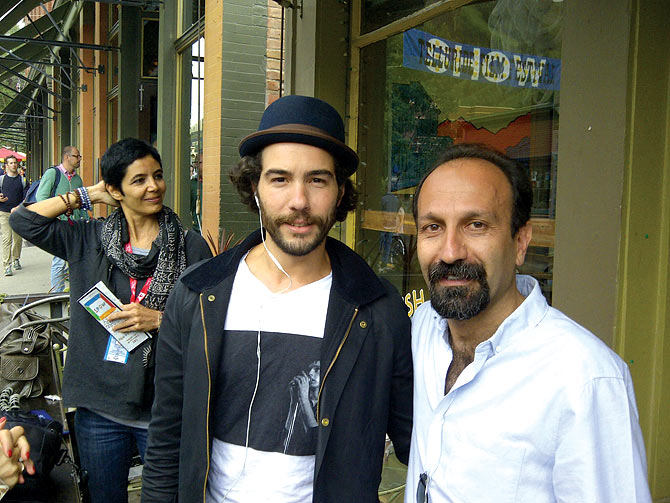
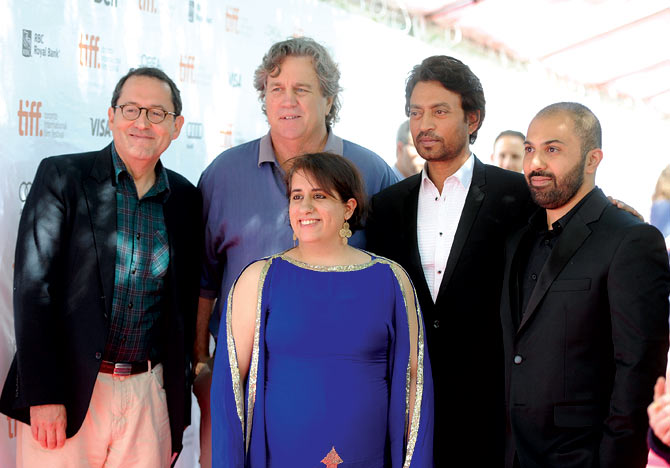
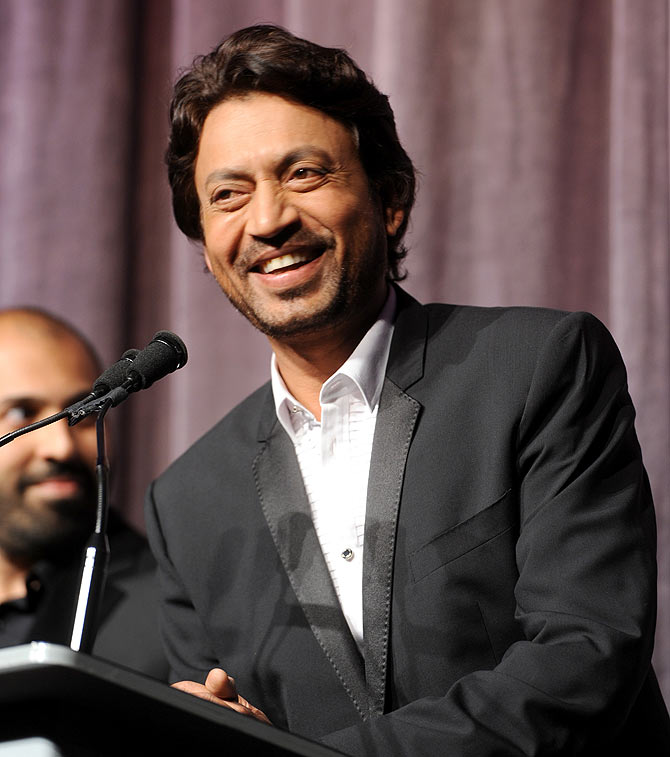
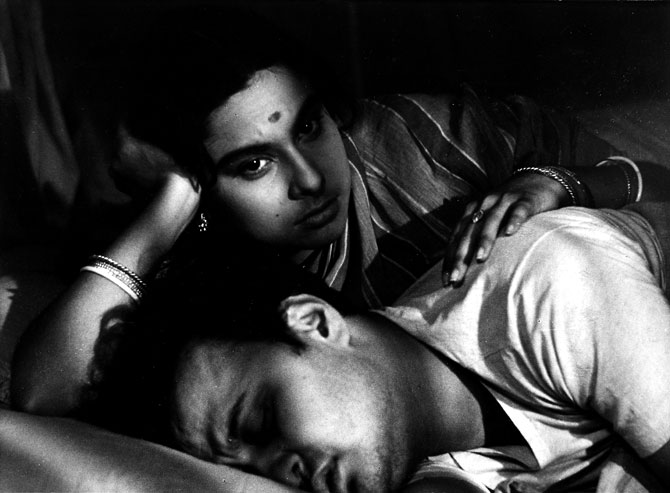
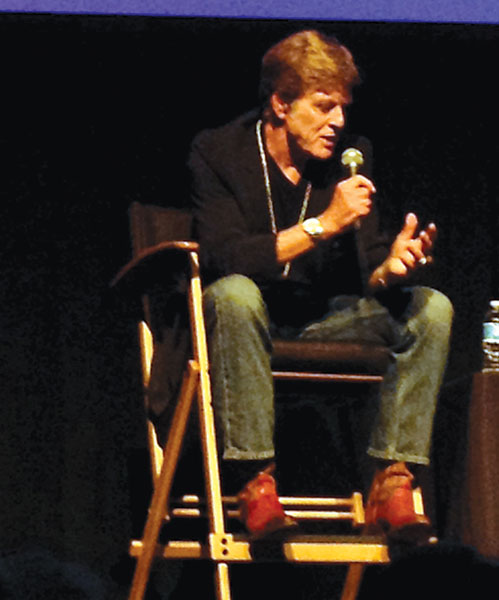
Comment
article